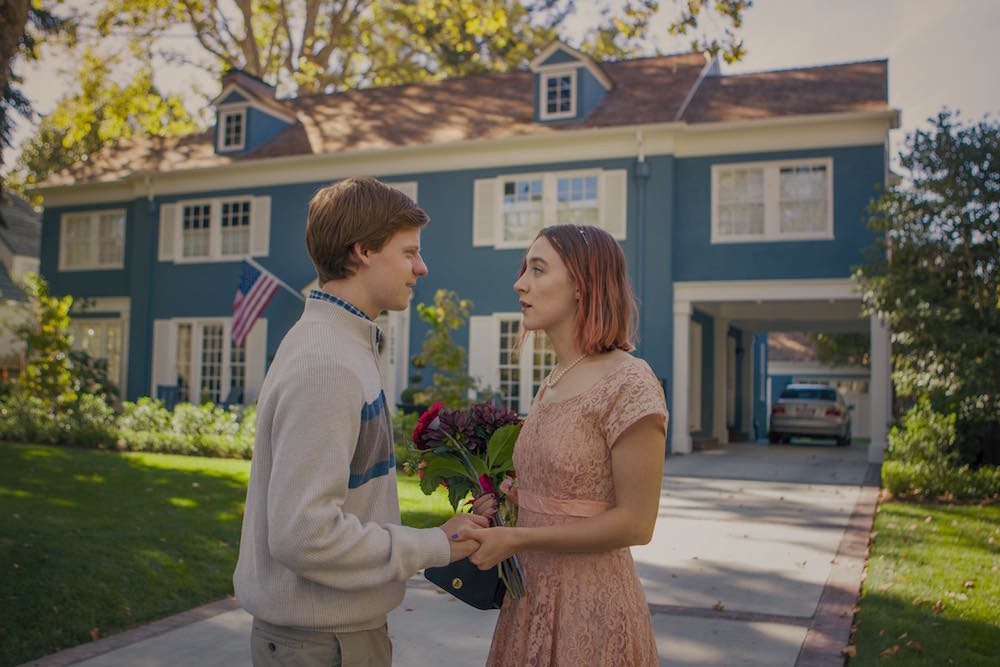Coming of age films are often, by definition, at least partly about sex. Adult filmgoers, the main audience for these films, like them because they can relive their own confusion and awkwardness at a slight remove, personified by good-looking movie stars. Sexual themes and plot points abound: puberty, virginity, sexual orientation and, depending on the genre, masturbation and just plain being horny. At least where boys are concerned. In Call Me by Your Name, 17-year-old Elio (Timothée Chalamet) is comfortable with sex, and bold in his pursuit of it, even when his desires make him feel vulnerable. In Beach Rats, Frankie pursues guys on dating websites while letting his buddies believe he prefers girls. Gay identity, bisexual and transgender identity are all becoming more frequent tropes in cinema. But whither pleasure? Give me peaches and apricots, yes, but give me female orgasms, too.
Until fairly recently, complex portrayals of teen girl sexuality were uncommon. Why this coy refusal to fully acknowledge adolescent girls' sexual lives? Is it because of that age-old archetypal dichotomy: male fear of female sexuality versus the fetishizing of female innocence? Only in darker genres do we see this conflict played out with anything approaching honesty. Consider the horror films where sexual awakening in young women has brutal results: Carrie, Teeth, Ginger Snaps, Let the Right One In, Raw. Consider the perverseness of fairy-tale imagery in films about sexual predators who prefer adolescent girls: Sleeping Beauty, Big Bad Wolves, The Woodsman.
Sexual agency and pleasure for its own sake in coming of age films are starting to become more visible, thanks to innovative filmmakers and a thriving indie milieu. Of course, there are still adult men who seduce schoolgirls, as in Ginger and Rosa, Fishtank, Diary of a Teenage Girl and An Education. In every case, the young protagonist eventually takes charge of the situation, and sometimes the results are gruesomely satisfying (check out The Beguiled).
It must be said: The majority of these films portray white characters, and more culturally diverse coming of age stories are sorely needed. Moonlight was a breath of fresh air across several narrative genres (Ashton Sanders as the conflicted teenage Chiron was heartstoppingly good). Pariah gave gay girls of color their due, but we need more. Alas, lesbian relationships between young girls are often portrayed as problematic or deviant in film (Heavenly Creatures, My Summer of Love), or mere "experimentation." In its way, Todd Haynes' Carol paved the way for the romantic, nuanced Call Me by Your Name, even though both love affairs had taboo swirling around them.
Over the years, we've seen girls in films portraying adolescents being coerced by peer pressure into sex: Think Thirteen, Kids or Smooth Talk. The notion of "trashy" teen sex is titillating for some (e.g. Harmony Korine's Spring Breakers, a stunning but, ultimately, unredemptive film – or his shocking debut, Gummo), but lyrical portrayals abound also: Remember Bertolucci's sensual 1996 film Stealing Beauty? The main story arc of that film was a 19-year-old girl's deflowering, set amid the idyllic Tuscan countryside. (A Room With a View might make a nice double feature, and, not for nothing, Call Me By Your Name offers many subtle homages.) It was a fabulous breakout role for Liv Tyler too. Despite its pervasive male gaze, the film's focus on female pleasure was refreshing.
Loss of virginity is the alpha and omega of coming of age cinema, and it is this trope that is increasingly shifting towards female agency. In Lone Scherfig's An Education, Carey Mulligan's breakout role is as a smart teen whose promising future is nearly derailed when a charismatic older man (Peter Sarsgaard) seduces her. But she takes charge of her own deflowering, refusing his offer to use a banana when she insists "I don't want to lose my virginity to a piece of fruit!"
Saoirse Ronan's Lady Bird takes pride in her choice to be "on top," her trump card as she admonishes her slutty boyfriend who lied about it being his first time (oh, Timothée Chalamet, stop breaking our hearts!). Hands up if you thought Lady Bird's titular heroine saying she preferred dry humping to intercourse was the Best. Thing. Ever.


